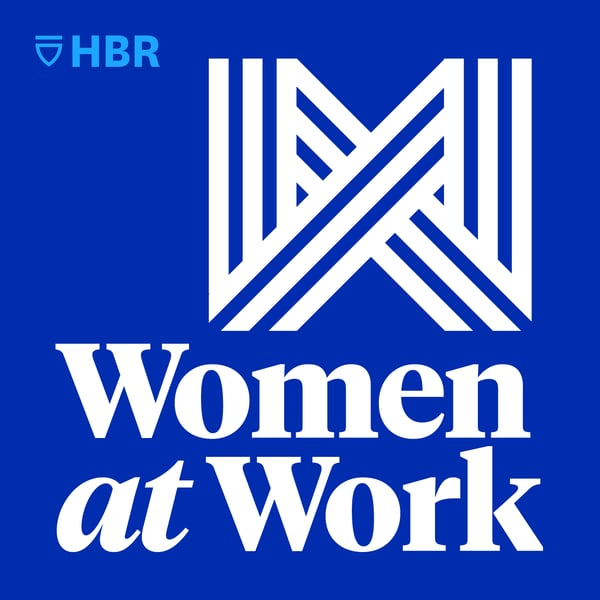Sexism Is Everywhere
Women at Work
Harvard Business Review
4.8 • 1.5K Ratings
🗓️ 4 December 2023
⏱️ 50 minutes
🧾️ Download transcript
Summary
Transcript
Click on a timestamp to play from that location
| 0:00.0 | Are you looking to accelerate your career? |
| 0:03.0 | Surround yourself with extraordinary peers. |
| 0:06.0 | It's not just a leg up, it's a leap forward. |
| 0:09.0 | That's the sidebar ethos. |
| 0:11.0 | Take the next step to level up your career at sidebar.com slash |
| 0:15.8 | HBR. You're listening to Women at Work from Harvard Business Review. I'm Enie Gallo. Hosting |
| 0:28.0 | this podcast has driven home one of the frustrating but true realities of |
| 0:32.3 | workplace cultures. Sexism is of the is inadequate are unfair parental leave policies. It also shows up in the assignments |
| 0:45.2 | and feedback and ratings that managers give us, or the credit and promotions and raises that |
| 0:50.9 | they don't. But knowing that sexism is everywhere doesn't soften the shock |
| 0:56.0 | when it happens to you. Like when somebody interrupts you over and over or takes credit for your |
| 1:01.6 | idea in a meeting, or when you receive an end of year rating that just doesn't align with your |
| 1:07.6 | actual performance. A lot of sexism is insidious, not blatant, which means it can be tough to discern whether something |
| 1:16.1 | a colleague or a client did or didn't do is in fact because of bias. |
| 1:22.4 | And that can lead to a lot of self-down. So if in some cases, maybe most, |
| 1:28.3 | we'll never know what drove their actions, how do we make peace with that uncertainty? |
| 1:34.4 | And when is confronting that person about the potential bias worth our energy? |
| 1:39.6 | Two women who study gender stereotypes and unconscious bias are here to talk through these questions with me. |
| 1:45.0 | Katie Kaufman is an economist and professor at Harvard Business School, where she studies how stereotypes impact our beliefs about ourselves. |
| 1:53.8 | Michelle De Guigd is a professor at Cornell and the school's Associate Dean of Diversity, |
| 1:58.6 | Inclusion, and Belonging. Michelle, Katie, thank you so much for joining us. |
| 2:05.0 | Great to be here. |
... |
Please login to see the full transcript.
Disclaimer: The podcast and artwork embedded on this page are from Harvard Business Review, and are the property of its owner and not affiliated with or endorsed by Tapesearch.
Generated transcripts are the property of Harvard Business Review and are distributed freely under the Fair Use doctrine. Transcripts generated by Tapesearch are not guaranteed to be accurate.
Copyright © Tapesearch 2025.

